- Home
- Ian Buruma
Theater of Cruelty Page 10
Theater of Cruelty Read online
Page 10
Wolf’s struggles with her personal morality struck a tremendous chord with a people force-fed with propagandistic pap. Yet she never wavered in her political commitment. This made her the ideal writer for a Communist regime, for she made it easier for people to live in a quasi-totalitarian state. Indeed, she made the personal sacrifices, the spiritual hardship seem virtuous. And this made those who chose to move to the capitalist West appear weak, even cowardly. Her first novel, A Divided Heaven, is about a man who decides to go west, leaving behind his fiancée, who wants to stick to the task of building a better Germany. There is no doubt which character we are supposed to admire. Wolf made the point again in many speeches, some delivered as late as November 1989.
Even state censorship, in her view, was not something to get overly upset about, for it, too, was spiritually bracing. After all, she said in 1975, “Goethe couldn’t have his Tasso performed for decades. But did he sulk?” Of course not. It is easy to give up, but “much more difficult to remain productive and just.” Not revolt, but a stiff upper lip; that was Wolf’s prescription for the long-suffering citizens of the GDR. Nietzsche is supposed to have said that “dancing in chains is the highest art.” And now that the chains have been severed? Hans Joachim Schädlich, a novelist who was forced to leave the GDR in 1977, put it this way: “They never liked the great authoritarian father, but now that he’s gone, they don’t know how to live without him.”
Wolf, like all her colleagues in the GDR, had developed a fine antenna for censorial sensitivities and knew pretty much how far she could push her luck. But the East Germans had an advantage over writers in other Communist countries in that they could have their work published in West Germany. Some of Wolf’s novels, Cassandra for example, actually appeared in two versions: a censored one in the East and an unexpurgated one in the West.12
The not uncommon belief that censorship fosters creativity is nonsense. But masterpieces have been produced in very difficult circumstances. Dancing in chains is not an absolute impossibility. Wolf is an interesting, if humorless, writer, whose books may not merit the Nobel Prize, which she was close to getting, but then nor do those of many authors so honored. She has expressed the inner life of an idealist, who was neither a conformist nor a dissident. The quest for her own identity is her main subject. In The Quest for Christa T.13 and Patterns of Childhood she turned autobiography into a fictional art. And in No Place on Earth and Cassandra she deftly removes the borders between the essay and fiction. Cassandra is a feminist reinterpretation of the Greek tragedy. Wolf identifies so closely with her heroine that Cassandra often sounds more like the author than the prophet of Troy. Although all these books are stylistically inventive, her best, in my view, is Patterns of Childhood.
This has much to do with the period in which the novel is set. For it is a story of disillusion with a faith once firmly held. She catches the duplicity of the Nazi state in all its ghastly nuances, because she can recognize it exactly for what it was. And she can do this without losing a certain human sympathy for the people who shared her beliefs.
Her novels set in the GDR are different. Instead of disenchantment, there is an almost perverse will to believe, to hold on to the faith, to catch that glimmer of utopia. This matters less in an allegorical story, such as No Place on Earth. And even in her contemporary novels she never describes the GDR as a workers’ paradise. What animates all her novels is not her belief that the contemporary Communist state is wonderful but her tenacious wish to believe that one day it will be. So whereas Patterns of Childhood is a novel of disenchantment, her subsequent books are those of a believer, who realizes at the same time that reality falls far short of her ideal.
It might be argued that just as the Roman Church gives Graham Greene’s work a piquancy it might not otherwise have had, Wolf’s art derives its strength from her faith in communism. In fact, however, I think neither writer has benefited from getting religion. There is something perverse, even willfully blind about both of them. Wolf’s oblique criticism of the Communist state is superficial and whatever piquancy it may contain, this hardly compensates for her tiresome preaching about the evils of bourgeois politics, America, capitalism, and so forth. But whereas Greene is also a cynical Englishman, aware of his own perversity, Wolf has allowed faith to cloud her vision of reality.
This may explain her latest novel, Was bleibt, written in 1979, “reworked” in 1989, and published this year.14 It is a slight work, little more than a novella, really, about a writer’s horror at finding out one morning that she is being watched by two young men posted outside her door. They are clearly Stasi agents, even though that notorious institution is never mentioned in the text. Considering what else the Stasi was up to—torturing people, for example—watching a famous, well-connected writer’s window may seem a minor affair. But not to Wolf (for the narrator is obviously she); it brings her usual soul-searching ambivalence to a crisis point: “I was possessed by a raging pain, which had settled itself inside me and made me a different person.” She is panic-stricken by the ghastly Kafkaesque atmosphere of her city, where everybody speaks conspiratorially or with a forked tongue, where old friends suddenly shun you in the street—why? Is it me? Is it them? Is it just in the imagination?
The crisis comes to a head:
I, myself, I could not get over those two words. Who was I? Which part of the multiple being, from which I constructed myself? That part which wished to know? Or that which wished to be spared? Or was it that third self, which still wanted to dance to the same tune as those men, outside my door?… That’s what I needed: to be able to believe that one day I could get rid of that third self; to believe that that was what I really wanted; and that, in the long run, I’d rather suffer those men outside than that third self in me.
Then the climactic scene: the writer is invited to give a lecture. She notes a distinct nervousness in the cultural worthies who have organized the evening, but she doesn’t grasp what it is until much later, when she discovers that she has been talking, honestly, she believes, or at any rate as honestly as she could, under the circumstances, to a select audience of officially trusted people. Her other audience, the young people who found solace in her books, were not allowed in; they were beaten up by the police. Order had to be maintained in the better Germany.
As Wolf describes the incident, in her anxious inner voice, we suddenly see Nelly emerge again, the innocent girl who joined the Hitler Youth organization. She knew, yet she didn’t know. She was an accomplice, yet she was innocent. She was innocent, but … well, perhaps, “I would have. I might have. I could have. Done it. Obeyed orders.”
This time, however, she couldn’t get away with it. She was not a young girl but a middle-aged writer, blessed with many privileges. This time, she wasn’t able to duck responsibility for a state she had supported. Analyzing her private fears, in that solipsistic way that has become her inimitable style, as though those fears were more important than their actual cause, was too much like discussing the meaning of fire while the forest burned. And so the book was violently attacked as soon as it appeared last spring.
For one thing, as many critics pointed out, the book simply came too late. If she had published it ten, or five, or even two years earlier, it would have caused a sensation. She would have been acknowledging the reality of a system whose terrors and failures were still being glossed over by many in the West. But to have done so now that the Stasi, the Wall, and all the other tawdry tools of oppression had been broken made her look opportunistic, self-pitying, and ridiculous. It was, as Ulrich Greiner wrote in Die Zeit, “as embarrassing as her resignation from the Party at a time when there was no more risk in doing so.” To bring out the book now, he went on, “didn’t betray a lack of courage, since there were no more dangers, but of sincerity toward herself, and her own history, a lack of sensitivity toward those whose lives have been destroyed by the Communist state.”
Embarrassing and insensitive, certainly; dishonest, perhaps. But can Wolf be a
ccused of being a “collaborator,” a Mitläufer, as they say in German? Was she simply a vulgar careerist, after all? Should she have spoken out more forcefully against the GDR regime? Does the fact that she did not discredit her as a writer? Does it detract from her work? These questions are being asked, sometimes by people who didn’t have to face the dilemmas of a Communist state. To demand courage in another person is always a tricky business when one is not exposed to the same dangers oneself. There is an element of hypocrisy involved here too, since many Western intellectuals applauded writers like Wolf, as well as the leftist, anti-American causes she stood for. If she is to be crucified for her opinions, so should many much more comfortably placed people in the West. And if it’s a matter of feeling betrayed by a writer who was thought to have been a dissident, she certainly never pretended to be one.
And yet, the positions of writers in quasi-totalitarian states must be taken into account in an assessment of their work. Hermann Broch once remarked that “truthfulness is the only criterion for autonomous art.” But could art produced in a state like the GDR ever be called autonomous? The officially sanctioned writers were, in the words of Günter Kunert, a novelist who went west, supposed to be ideological mediators between the powers that be and the people. Some conformed more to this model, others less. At what point is the work of an artist fatally compromised by the political pressures he or she cannot or will not resist? Kunert was privileged, like Wolf. But “he couldn’t stand it anymore to walk around happy and free in the midst of prisoners. The privilege to be able to travel became an oppressive burden. And one was always aware that this privilege depended to a great extent on one’s good behavior.”15 Good behavior, naturally, extended to what appeared in print.
Since much of the present debate in Germany about writing in the former GDR is between those who stayed and those who left, there are echoes of the late 1940s. A similar battle took place then between the exiles, many of whom returned to the socialist half of Germany, and the writers who had made their pact with Hitler. The most famous exile was Thomas Mann. This was his assessment of the years of his absence:
In my eyes, the books that could be published at all in Germany between 1933 and 1945 are less than worthless. I hardly wish to touch them. They reek of blood and shame. It was not allowed, indeed it was impossible to create “culture” in Germany, while we knew what was going on all around us. What was done instead was to gloss over decay and decorate the hideous crime. One of the agonies we suffered was to watch how the German spirit and German art were being used as the shield of something absolutely monstrous.16
The GDR was not the Third Reich, nor was everything published there until 1990 worthless. But Kultur, including the German spirit alluded to by Mann, was pressed into service by the state to further its political ends. And just as the writers who stayed in Nazi Germany sneered at the “unpatriotic” exiles, those who stuck with the Communist state, such as Stefan Heym, still express contempt for those who left. The point of finding out why writers like Heym and Wolf allowed themselves to be compromised by a corrupt and oppressive regime, all in the name of a distant ideal, is not to morally condemn them, or to suggest that their work can be reduced to a mere exercise in propaganda. Wolf’s books are certainly better than that. But without questioning their politics, it is impossible to understand the nature of their art. For in the melancholy context of modern history, especially in Germany, art and politics cannot be cleanly separated without doing damage to the very thing Wolf considers the central theme of her work: our memory.
It is interesting that both Syberberg and Wolf share a fascination for Kleist and the German Romantics. Could it be that in their respective quests for utopia—in Syberberg’s case a kind of kitsch, de-Nazified vision of Blood and Soil, in Wolf’s an ideal socialist state without Stalin—that they have something deeper in common than a loathing for America and messy liberal democracy? Do they miss, perhaps, the heady sense of idealism of their youth, which they have tried to recreate, in their different ways, ever since? This makes them rather anomalous in a nation that is distinctly lacking in idealistic fervor these days, but it is precisely why Wolf still admonished the masses to “dream” and why Syberberg uses every opportunity to vent his misanthropic disgust with the modern world and the people who live in it. They are intellectuals forever in search of the ideal community.
In an interview given in 1982, Wolf says something very self-revealing about the German Romantics of the nineteenth century: “They perceived with some sensitivity that they were outsiders, that they were not needed in a society which was in the process of becoming industrial society, of intensifying the division of labour, of turning people into appendages of machines.”
This is the common enemy of many intellectuals, in East and West, of left and right: the industrial society of machines, contracts, of contending political parties, where the imagination is not in power, where intellectuals and artists are outsiders, tolerated, often well paid, even lionized, but nonetheless on their own. Nazism and socialism promised solidarity, a family state, unity of the Volk. There was a role to play for idealists; they could be prophets of the new order. Wolf was a prophet in the GDR, the antifascist Heimat that was in so many ways the mirror image of her first, Nazified home: “We were living as socialists in the GDR because we wanted to be involved in that country, make our contribution there. When individuals are thrown back on literature alone, they are plunged into crisis, an existential crisis.”
It is this crisis that leads to the kind of fear displayed by Syberberg, and even Grass, the fear of being ignored, of preaching to deaf ears, of losing the prophet’s mantle. The Heimat is also a childish fantasy, a fantasy of order, security, and power, the ideal conditions of infancy. Syberberg lost his Heimat twice; he was expelled from Pomerania at the end of the war and left the GDR in 1953. And he has been pining for the Volk ever since, for the banners of solidarity, the smell of the native soil, the sacred poetry of the German bards, the ruined castles of the ancient kings, and so on. Because this ideal community is an imaginary one, he must invent it through the fairy tales of his childhood: Hitler’s speeches, Karl May’s adventure stories, and echoes from Bayreuth. Which may be why his film sets look like gigantic toy stores, with Syberberg, as a monstrous child, rummaging through the props of his imagination.
Wolf, whose fantasy was never as baroque as Syberberg’s, invented her imaginary community in the Communist state. Her communism, as is so often true, was always reactionary, the road back to something that was lost, long ago. Something she would never forget, just as Cassandra couldn’t forget Troy:
All this, the Troy of my childhood, no longer exists except inside my head. I will rebuild it there while I still have time, I will not forget a single stone, a single incidence of light. It shall be kept faithfully inside me, however short the time may be. Now I have learned to see what is not, how hard the lesson was.
1 Vom Glück und Unglück der Kunst in Deutschland nach dem Letzten Kriege (Berlin: Matthes & Seitz, 1990).
2 The Utopian Function of Art and Literature: Selected Essays, translated by Jack Zipes and Frank Mecklenburg (MIT Press, 1989), p. 128.
3 “Syberberg’s Hitler,” Under the Sign of Saturn (Farrar, Straus and Giroux, 1980).
4 The full script was published by Farrar, Straus and Giroux in 1982, entitled Hitler: A Film from Germany, translated by Joachim Neugroschel.
5 These quotations are from Vom Glück und Unglück der Kunst in Deutschland nach dem Letzten Kriege.
6 The review was by Hellmuth Karasek.
7 Konkret, October 10, 1990.
8 Konkret, October 10, 1990.
9 Translated by Ursule Molinaro and Hedwig Rappolt (Farrar, Straus and Giroux, 1984).
10 The quotations from Wolf’s interviews are all from The Fourth Dimension: Interviews with Christa Wolf, translated by Hilary Pilkington (Verso, 1989).
11 Translated by Jan van Heurck (Farrar, Straus, and Giroux, 1982).
12
Cassandra: A Novel and Four Plays, translated by Jan van Heurck (Farrar, Straus and Giroux, 1984).
13 Translated by Christopher Middleton (Farrar, Straus and Giroux, 1979).
14 Munich: Luchterhand, 1990; What Remains and Other Stories, translated by Heike Schwarzbauer and Rick Takvorian (Farrar, Straus and Giroux, 1993).
15 Frankfurter Allgemeine Zeitung, June 30, 1990.
16 Thomas Mann: Briefe II, 1937–1947 (Frankfurt: Fischer Taschenbuchverlag, 1979).
7
THE AFTERLIFE OF ANNE FRANK
ANNE FRANK WAS an ambitious young woman, and most of her wishes came true. She wanted to be a famous writer and “to go on living even after my death!”1 Few writers are as famous as she. The Diary of Anne Frank continues to be read by millions of people in dozens of languages. The movie version was a global success. The “award-winning” play, based on the diary, was a smash hit on Broadway, as well as pretty much everywhere else, and its current revival is playing to full houses.2 As is usually the case with fame of this scale, the quality of the original work does not fully explain the legendary status of its author.
Anne Frank has become more than a writer, and more than a victim of the Holocaust whose eloquent voice happens to have reached us across the stinking pits of Bergen-Belsen. She has become an almost sacred figure, a Jewish Saint Ursula, a Dutch Joan of Arc, a female Christ. I grope for Christian examples, since Jews don’t canonize their martyrs as saints. Nor do Jewish saints offer universal redemption. Anne’s most famous words—“In spite of everything, I still believe that people are really good at heart”—have been notoriously wrenched out of context to promise just that. And gratefully they were received, too, especially in Germany.

 A Japanese Mirror
A Japanese Mirror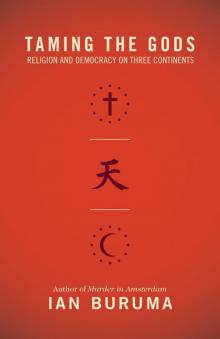 Taming the Gods
Taming the Gods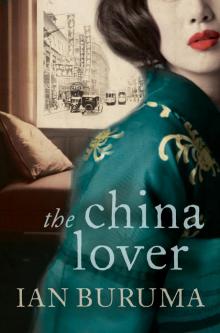 The China Lover
The China Lover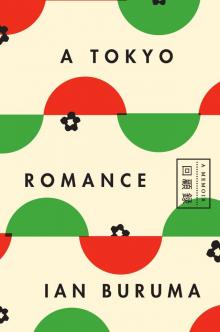 A Tokyo Romance
A Tokyo Romance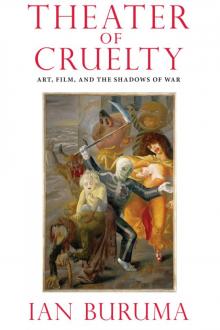 Theater of Cruelty
Theater of Cruelty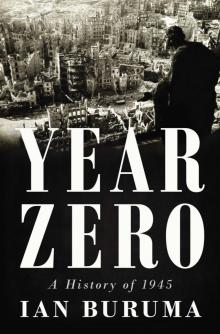 Year Zero
Year Zero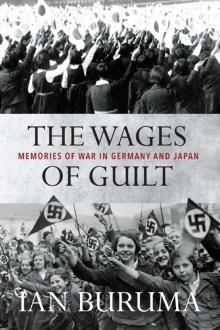 The Wages of Guilt
The Wages of Guilt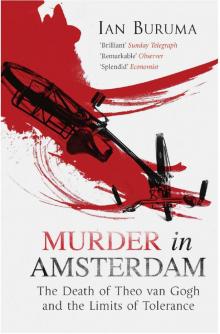 Murder in Amsterdam
Murder in Amsterdam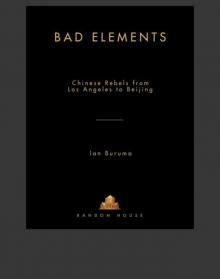 Bad Elements
Bad Elements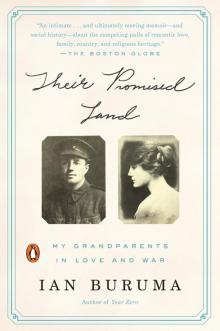 Their Promised Land
Their Promised Land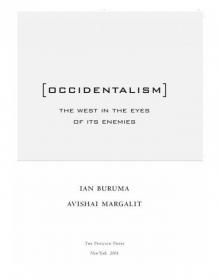 Occidentalism
Occidentalism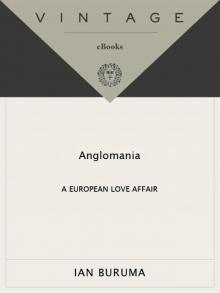 Anglomania
Anglomania Inventing Japan: 1853-1964 (Modern Library Chronicles)
Inventing Japan: 1853-1964 (Modern Library Chronicles)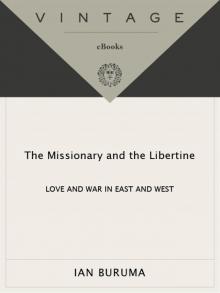 The Missionary and the Libertine
The Missionary and the Libertine